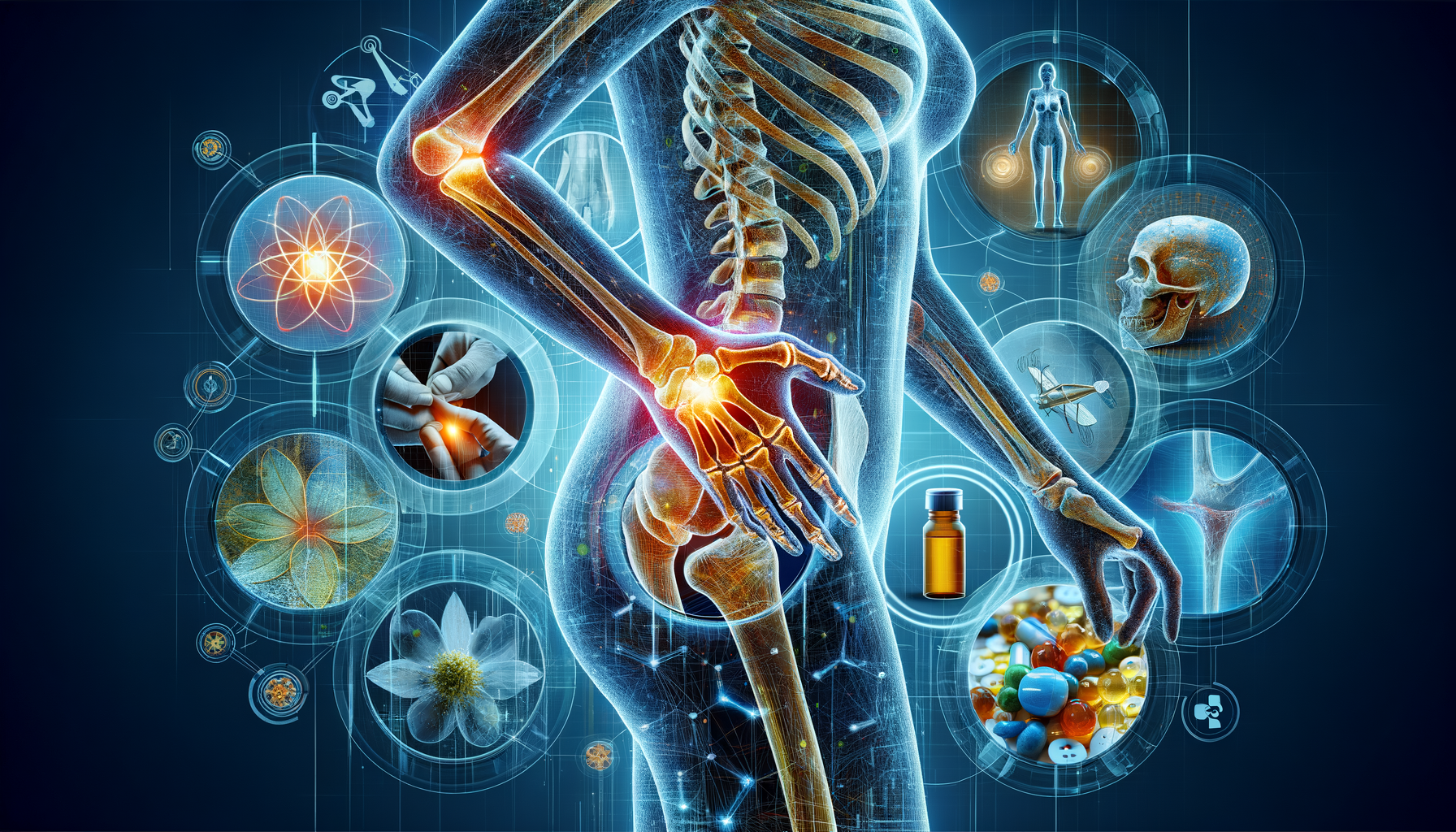Understanding Arthritis and Its Impact
Arthritis is a condition that affects millions of people worldwide, characterized by inflammation and pain in the joints. It can significantly impact a person’s quality of life, making daily activities challenging and sometimes debilitating. Understanding the nature of arthritis is crucial for managing its symptoms effectively. There are over 100 types of arthritis, with osteoarthritis and rheumatoid arthritis being the most common. Osteoarthritis is a degenerative joint disease, while rheumatoid arthritis is an autoimmune disorder where the body’s immune system attacks its own tissues.
The impact of arthritis extends beyond physical discomfort. It can lead to emotional and psychological stress, as chronic pain often affects mood and mental health. People with arthritis may experience feelings of frustration, anxiety, and depression, which can further complicate the management of the condition. Therefore, a comprehensive approach that addresses both physical and emotional aspects is essential for effective arthritis management.
Top Strategies for Arthritis Pain Relief in 2025
As we look towards 2025, several innovative strategies are emerging to provide relief for arthritis pain. These strategies are informed by recent research and advancements in medical technology, offering hope to those suffering from this chronic condition. Here are four notable approaches:
- Personalized Medicine: Advances in genetic research are paving the way for personalized medicine, where treatments are tailored to an individual’s genetic makeup. This approach promises to improve the effectiveness of arthritis treatments by targeting the specific genetic factors contributing to the disease.
- Biologics and Biosimilars: Biologic drugs, which are derived from living organisms, have shown promise in treating arthritis by targeting specific components of the immune system. Biosimilars, which are nearly identical copies of biologics, offer a more cost-effective alternative, making these treatments more accessible.
- Non-Pharmacological Therapies: Techniques such as physical therapy, acupuncture, and mindfulness meditation are gaining recognition for their ability to alleviate arthritis pain without the side effects associated with medication. These therapies focus on improving joint function, reducing stress, and enhancing overall well-being.
- Wearable Technology: The development of wearable devices that monitor joint health and track movement patterns is revolutionizing arthritis management. These devices provide real-time data to both patients and healthcare providers, enabling more informed decisions about treatment and lifestyle adjustments.
Role of Diet and Exercise in Managing Arthritis
Diet and exercise play a pivotal role in managing arthritis symptoms and improving overall health. A balanced diet rich in anti-inflammatory foods can help reduce joint pain and swelling. Foods such as fatty fish, nuts, seeds, fruits, and vegetables are known for their anti-inflammatory properties and can be beneficial for individuals with arthritis.
Exercise, on the other hand, helps maintain joint flexibility and muscle strength. Low-impact activities such as swimming, cycling, and walking are particularly beneficial for people with arthritis, as they minimize stress on the joints while promoting cardiovascular health. Regular physical activity can also help manage weight, which is crucial since excess weight puts additional strain on the joints, exacerbating arthritis symptoms.
Incorporating both dietary changes and exercise into a daily routine can lead to significant improvements in arthritis management. However, it’s essential to consult with healthcare professionals to tailor these changes to individual needs and capabilities.
Emerging Research and Future Directions
Research in arthritis is continually evolving, with scientists exploring new avenues for treatment and management. One promising area of research is the use of stem cells to repair and regenerate damaged joint tissues. Although still in the experimental stages, stem cell therapy holds potential for reversing the damage caused by arthritis and restoring joint function.
Another exciting development is the exploration of gut health and its connection to arthritis. Studies suggest that the gut microbiome may influence inflammation and immune responses, opening up possibilities for new treatments targeting gut health to alleviate arthritis symptoms.
As research progresses, it is likely that more effective and targeted treatments will become available, offering hope for improved quality of life for those living with arthritis.
Conclusion: Embracing a Holistic Approach
Managing arthritis pain requires a multifaceted approach that combines medical treatments with lifestyle changes. By staying informed about the latest research and treatment options, individuals with arthritis can take proactive steps to manage their condition. Embracing a holistic approach that includes medication, diet, exercise, and emerging technologies can empower individuals to lead fulfilling lives despite the challenges posed by arthritis.
Ultimately, the goal is to reduce pain, improve joint function, and enhance overall well-being, enabling those with arthritis to navigate their daily lives with greater ease and confidence.








